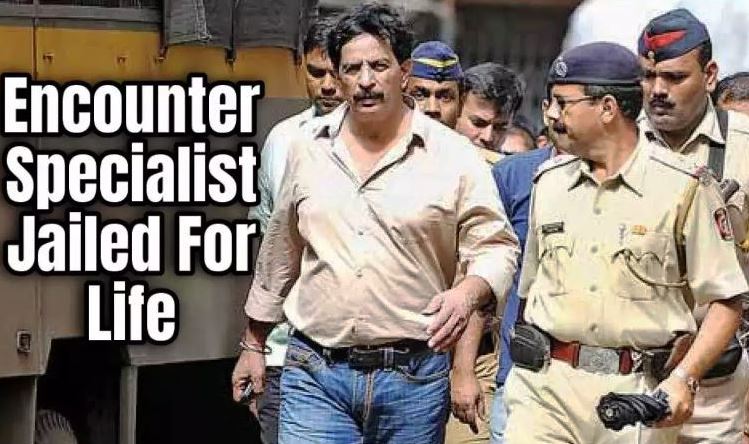Discover the shocking Pradeep Sharma conviction in the 2006 Mumbai fake encounter case. Bombay High Court’s verdict on the Ramnarayan Gupta case and Chhota Rajan gang encounter.
Mumbai Cop Pradeep Sharma Convicted in 2006 Lakhan Bhaiya Encounter Case: A Deep Dive
Introduction: In a landmark judgment, the Bombay High Court has sentenced former Mumbai cop Pradeep Sharma to life in prison for his involvement in the infamous 2006 Lakhan Bhaiya encounter case. This decision comes after an exhaustive legal battle that saw appeals filed by both the accused and the state, highlighting the complexity and significance of the case.
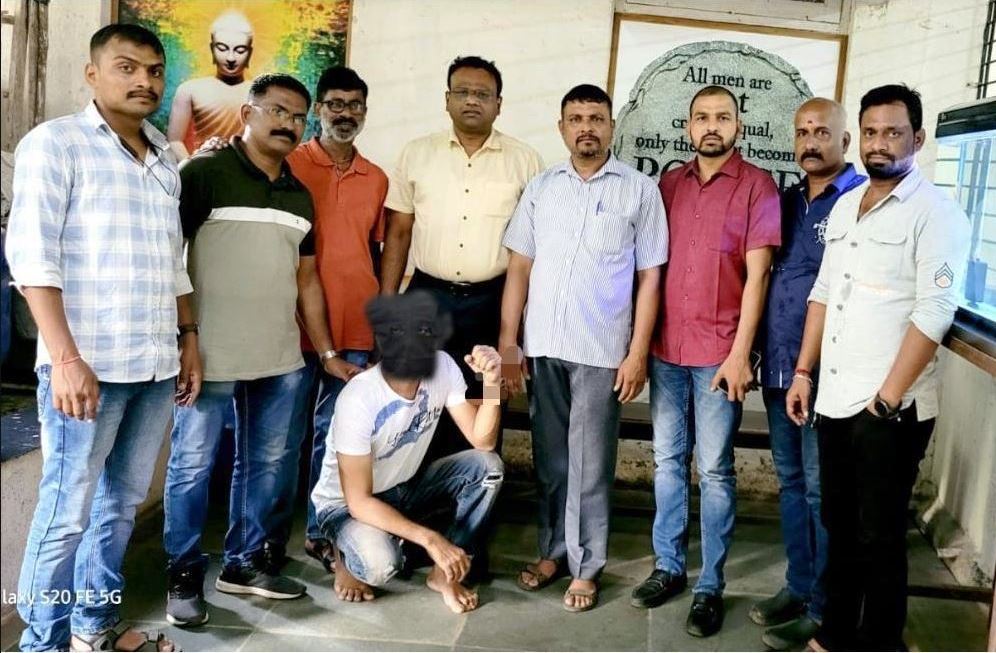
Body: The trial court’s acquittal of Pradeep Sharma, once hailed as an ‘encounter specialist’, was overturned by the Bombay High Court, citing overwhelming evidence against him. The bench, comprising Justices Revati Mohite-Dere and Gauri Godse, meticulously analyzed the case, concluding that Sharma’s role in the encounter was evident beyond doubt. This verdict brings closure to a chapter marred by controversy and sheds light on the intricacies of justice delivery in high-profile cases.
While Sharma received a life sentence, the High Court acquitted six of the 21 accused in the case and upheld the trial court’s judgment against 11 others. The involvement of key individuals, including Tanaji Desai, Pradeep Suryavanshi, and Dilip Palande, underscores the complexity of the case. Furthermore, the unfortunate demise of two convicts during the appeals process serves as a reminder of the human cost intertwined with legal proceedings.
The Lakhan Bhaiya encounter case, with its roots in Mumbai’s underworld, captured national attention due to its controversial nature. Investigations revealed that the encounter was staged, with Lakhan Bhaiya allegedly picked up by Pradeep Sharma’s team and subsequently eliminated. The case’s intricacies highlight the challenges faced by law enforcement agencies in tackling organized crime while upholding the principles of justice and fairness.
Conclusion: The conviction of Pradeep Sharma and others involved in the Lakhan Bhaiya encounter case marks a significant milestone in India’s legal landscape. The meticulous scrutiny of evidence, coupled with the pursuit of justice, underscores the judiciary’s commitment to upholding the rule of law. As the legal saga concludes, it serves as a poignant reminder of the complexities inherent in addressing crime and corruption, ultimately reaffirming the importance of accountability and transparency in governance.
Unveiling Justice: Ex-Cop Pradeep Sharma Sentenced to Life in 2006 Mumbai Fake Encounter Case
Introduction: In a significant turn of events, the Bombay High Court has upheld the conviction and handed a life sentence to former Mumbai police officer Pradeep Sharma in connection with the 2006 fake encounter killing of Ramnarayan Gupta, also known as Lakhan Bhaiya. This decision marks a crucial milestone in the pursuit of justice and accountability within law enforcement agencies.
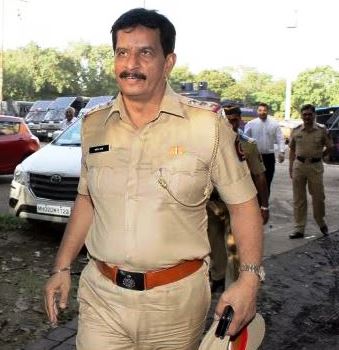
Body: The Bombay High Court’s verdict, setting aside Sharma’s previous acquittal, underscores the gravity of the case. Sharma, once considered an “encounter specialist,” now faces life imprisonment for his role in the orchestrated killing of Lakhan Bhaiya. The court’s meticulous examination of evidence revealed a disturbing pattern of abuse of power and disregard for the rule of law within the police force.
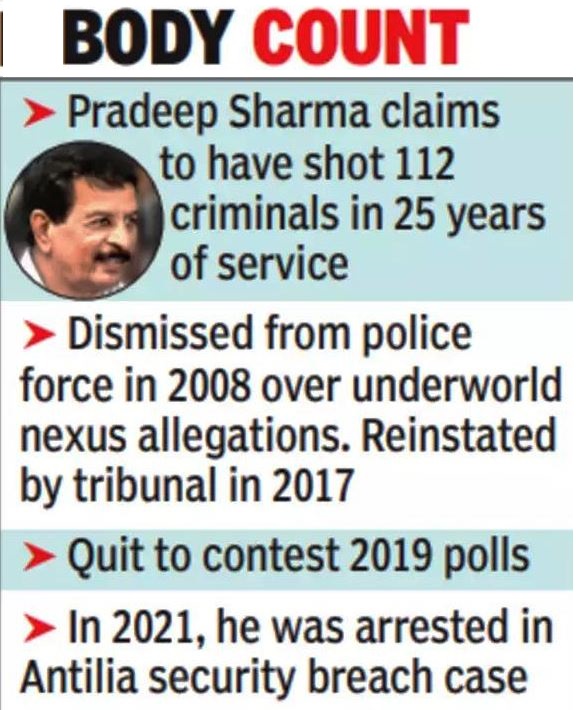
The bench of Justices Revati Mohite-Dere and Gauri V Godse meticulously analyzed the case, highlighting the prosecution’s compelling evidence against Sharma and his accomplices. The court observed that the fake encounter was staged by trigger-happy cops to mimic a genuine police operation, shedding light on the systemic flaws within law enforcement agencies.
While Sharma’s conviction takes center stage, the bench also upheld the life sentences of 12 other policemen involved in the case, reaffirming the principle of accountability for all parties responsible for the extrajudicial killing. However, the court acquitted six individuals, emphasizing the need for a nuanced approach to justice delivery.
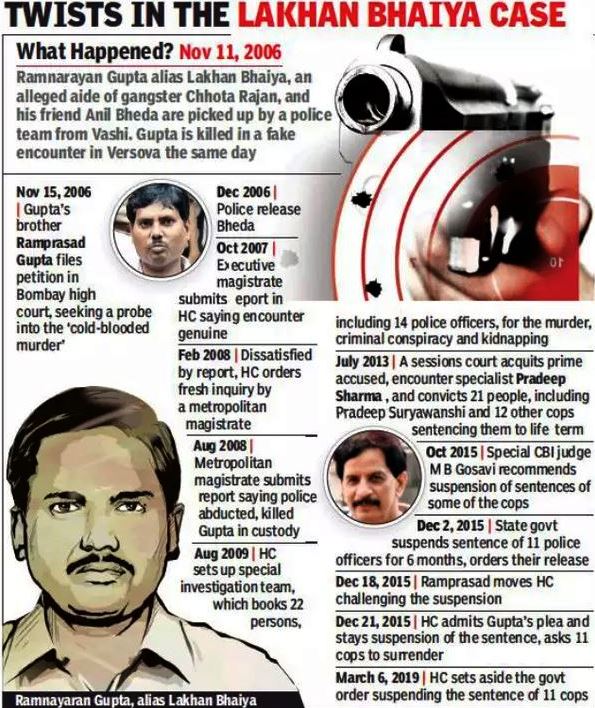
The verdict sends a strong message that the abuse of power and custodial killings will not be tolerated in a democratic society. The bench emphasized the importance of upholding the rule of law and protecting citizens’ rights, condemning the police’s misuse of authority and uniform in perpetrating such heinous crimes.
Furthermore, the court expressed dismay over the lack of progress in investigating the murder of a prime witness, Anil Bheda, whose tragic death underscored the challenges of seeking justice in the face of entrenched corruption and impunity. The judiciary called upon law enforcement agencies to redouble their efforts to apprehend the perpetrators and restore public faith in the justice system.
Conclusion: The conviction of Pradeep Sharma and his cohorts in the 2006 Mumbai fake encounter case represents a triumph of justice over impunity. The Bombay High Court’s decisive action underscores its commitment to upholding the rule of law and holding accountable those who betray the public trust. As the legal saga unfolds, it serves as a sobering reminder of the challenges inherent in combating police misconduct and ensuring transparency and accountability within law enforcement agencies.
Breaking News: Mumbai Ex-Cop Pradeep Sharma Sentenced to Life in 2006 Fake Encounter Case
Introduction: In a significant development, the Bombay High Court has handed down a life sentence to former Mumbai policeman Pradeep Sharma for his involvement in the fake encounter of Ramnarayan Gupta, a suspected associate of gangster Chhota Rajan, in 2006. This verdict comes after years of legal proceedings and highlights the court’s commitment to justice and accountability.
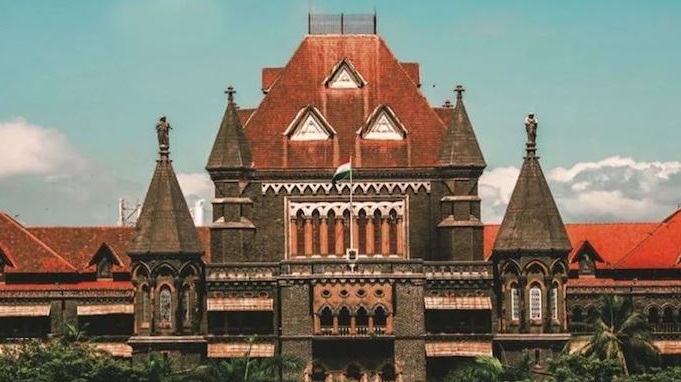
Body: The division bench of Justices Revati Mohite Dere and Gauri Godse overturned the sessions court’s acquittal of Sharma, labeling it as “perverse” and “unsustainable.” Citing overwhelming evidence, the court emphasized Sharma’s undeniable role in the case and directed him to surrender within three weeks. Additionally, the bench upheld the conviction and life sentences of 13 individuals, including policemen, while acquitting six others.
The case, which saw a total of 22 defendants, including 13 policemen, charged with murder, garnered widespread attention due to its implications on law enforcement integrity. Despite the sessions court’s earlier acquittal of Sharma in 2013, the high court’s ruling underscores the gravity of his involvement in the staged encounter.
Special public prosecutor Rajiv Chavan argued that the case exposed a chilling reality wherein those entrusted with upholding law and order were complicit in a premeditated act of violence. The prosecution maintained that Sharma played a pivotal role as the mastermind behind the abduction and murder operation.
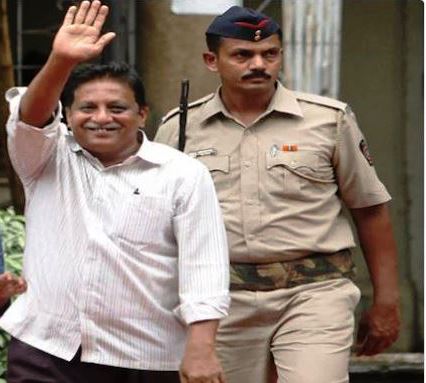
On November 11, 2006, Gupta, also known as Lakkhan Bhaiya, was apprehended by a police team in Vashi on suspicion of ties to the Rajan gang. Later that evening, he was killed in what authorities deemed a “fake” encounter near Nana Nani Park in suburban Versova. The court’s verdict sends a strong message against impunity and underscores the imperative of holding law enforcement officials accountable for their actions.
Conclusion: The sentencing of Pradeep Sharma in the 2006 fake encounter case represents a significant step towards upholding the rule of law and ensuring accountability within the criminal justice system. The Bombay High Court’s decision reaffirms its commitment to impartiality and fairness, setting a precedent for future cases involving police misconduct. As the legal process continues, this verdict serves as a beacon of hope for those seeking justice and underscores the importance of transparency and accountability in law enforcement practices.
FAQ(s) on Pradeep Sharma conviction, 2006 Mumbai fake encounter, Bombay High Court verdict, Ramnarayan Gupta case, Chhota Rajan gang encounter
Q1. Who is the judge of Mumbai court?
Shri. M. R. A. Shaikh holds the position of Chief Metropolitan Magistrate and is located in the 1st Court.
Shri S. V. Dindokar serves as an Additional Chief Metropolitan Magistrate and can be found in Room 02.
Shri J. C. Yadav occupies the role of an Additional Chief Metropolitan Magistrate and operates from Room 03.
Smt. S. U. Deshmukh is an Additional Chief Metropolitan Magistrate and is situated in Room 04.
Q2. What do you know about the Bombay High Court?
The Bombay High Court was established on August 14, 1862. It possesses both Original and Appellate Jurisdiction. The Original Jurisdiction was inherited from the Supreme Court, while the Appellate Jurisdiction originated from the integration of the Sudder Diwani and Sudder Foujdari Adalats into the High Court.
Q3. Who is lakhan bhaiya?
On Tuesday, the Bombay High Court handed down a conviction and life sentence to Pradeep Sharma, a former policeman renowned as an encounter specialist. Sharma was found guilty of orchestrating the fake encounter that led to the death of Ramnarayan Gupta, also known as Lakhan Bhaiyya, purportedly associated with the Chhota Rajan gang. The incident occurred in Versova in November 2006.
Q4. Who was Ram Narayan Gupta?
On November 11, 2006, law enforcement officials apprehended Ram Narayan Gupta, also known as Lakhan Bhaiya, in Vashi, suspecting his affiliation with the Rajan gang. Accompanied by his friend Anil Bheda, Gupta was picked up by a police team. Tragically, Gupta was fatally shot later that evening in what authorities deemed a staged or “fake” encounter in Mumbai.
Q5. What happened to Chhota Rajan?
On April 25, 2017, a special CBI Court in New Delhi sentenced Rajan and three other defendants to seven years of rigorous imprisonment in the fake passport case. Subsequently, on May 2, 2018, the Maharashtra MCOCA court convicted Chhota Rajan, also known as Abhay, for the murder of journalist J. Dey and imposed a life sentence.

